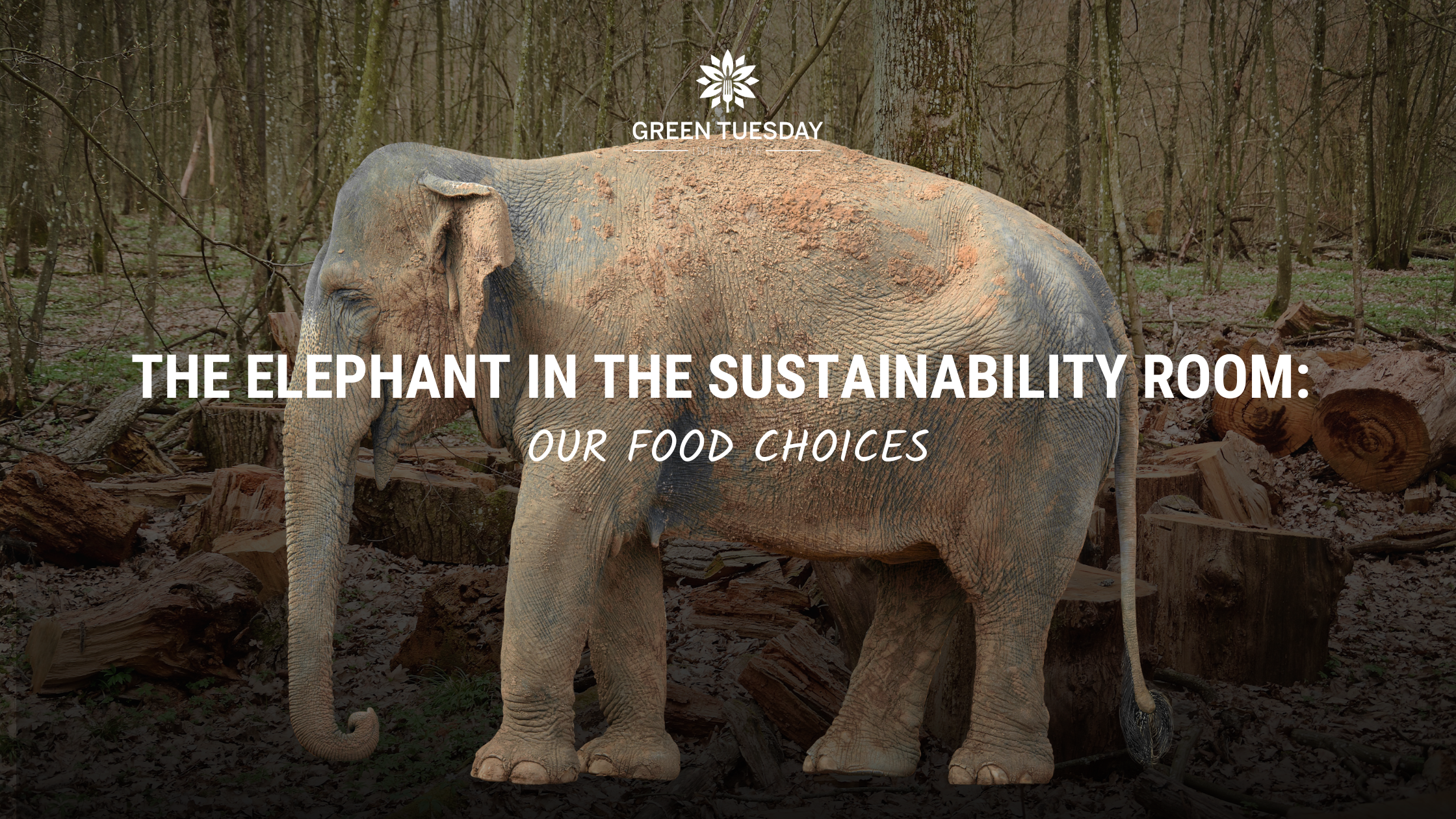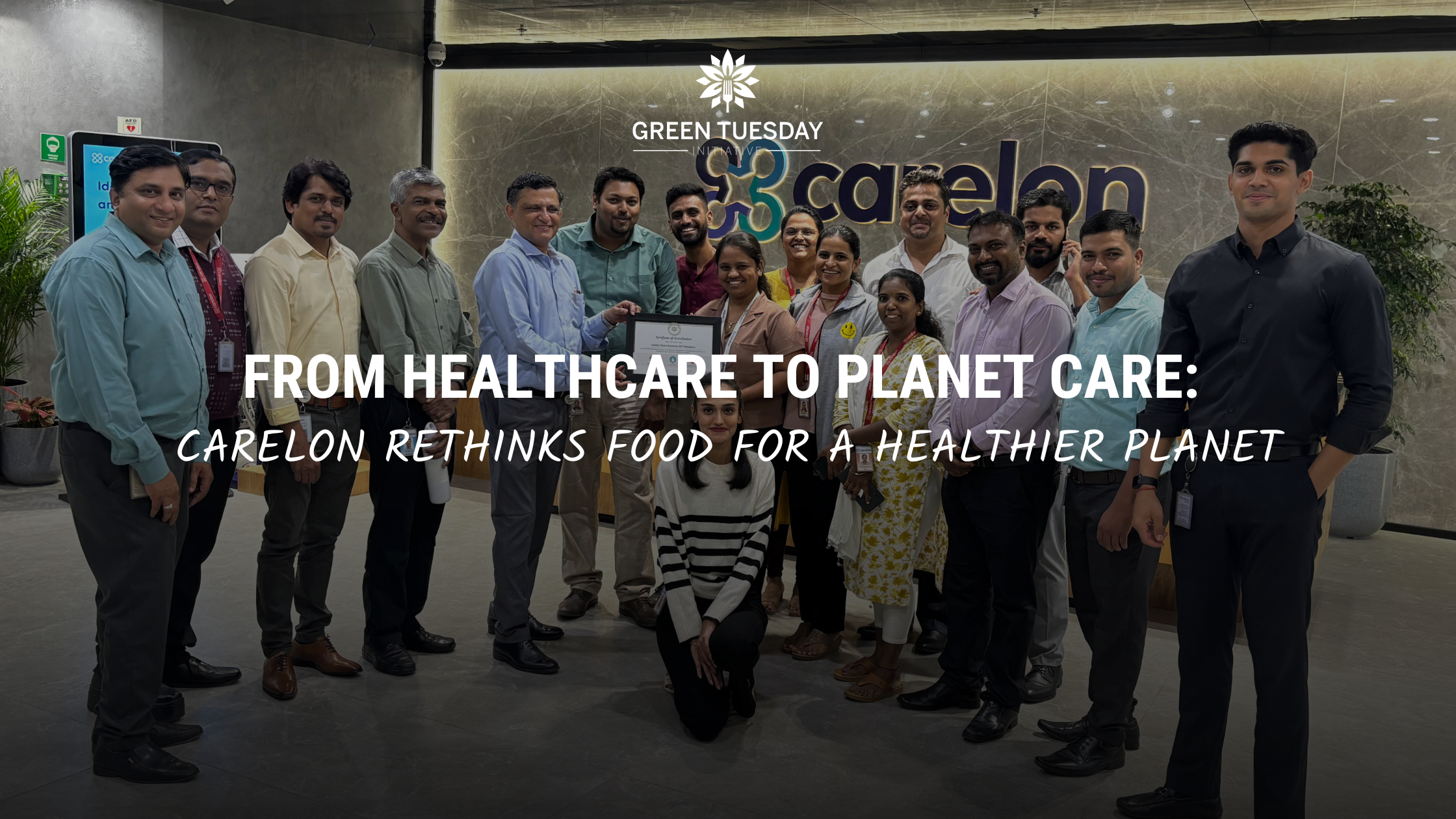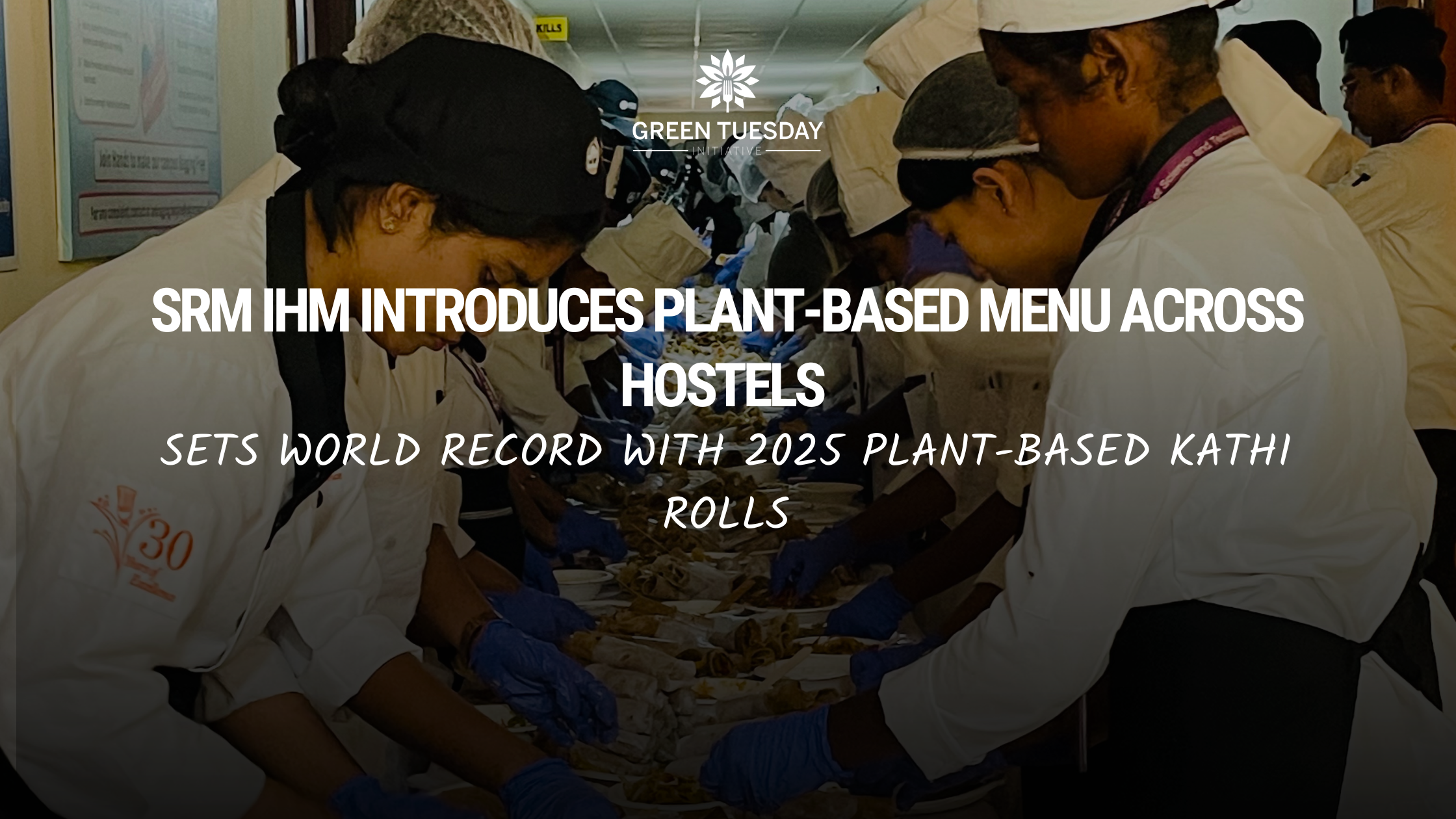We talk about emissions. We talk about energy. We talk about plastic. But when it comes to the climate crisis, there’s one topic almost no one wants to touch – food.
Despite mounting scientific evidence, animal agriculture remains the elephant in the sustainability room, largely ignored in corporate sustainability plans, ESG disclosures, and environmental policy conversations. This silence comes at a cost. Our food system is one of the largest contributors to greenhouse gas emissions, freshwater use, and biodiversity loss. And yet, it’s rarely on the menu when sustainability solutions are discussed.

The Story of Change
While policymakers remain hesitant to address the environmental impact of carbon-intensive foods derived from animal agriculture, institutions across India and Vietnam are quietly leading the way. Their tool? A simple, science-backed intervention: replace carbon-intensive foods with plant-based options, just one day a week.
In 2024, Green Tuesday partner institutions removed over 1.39 million pounds of animal products, including meat, eggs, and dairy, from their menus. This change helped prevent the suffering of animals while delivering measurable environmental benefits: an estimated 51.6 million pounds of CO₂e emissions avoided and 69.8 billion gallons of water saved. With nearly 84,000 employees and students reached, the impact shows that even one weekly shift to plant-based meals can help institutions align food policy with sustainability goals, without costly overhauls.

These aren’t hypothetical savings. They’re the result of real people – students, chefs, employees, and CSR teams – making a small but consistent shift in what’s being served.
Institutions That Are Breaking the Silence
While most sustainability plans focus on energy or waste, some institutions are pushing the conversation further, toward food. And when food becomes part of a sustainability strategy, the results speak for themselves.
Caption: Institutions are starting to talk about food and climate, and they’re already seeing the benefits. #LetsTalkAboutIt
At Tech Mahindra, plant-based Tuesdays have become a way to cut their food-related carbon footprint and spark awareness among employees. At SRM Institute of Hotel Management, culinary education is evolving to meet the growing demand for sustainable and health-conscious dining. And at FPT Software, Green Tuesday is integrated into a broader goal to create long-lasting value for employees, clients, and the planet.
These institutions aren’t waiting for food to become a standard ESG metric. They’re treating it as a powerful, practical lever for change.
So why is it still missing from most sustainability strategies?
Ready to Lead? Let’s Talk About It
If food systems contribute this much to the climate crisis, and if institutions are already seeing results from simple shifts, then the next question is: What’s stopping the rest of us?
The Green Tuesday Initiative offers a clear, practical way to align your food policy with your sustainability goals. No complex rollouts. No disruptive changes. Just one weekly shift that adds up to a measurable impact.
This World Environment Month, we’re inviting institutional leaders, CSR teams, ESG teams, and sustainability professionals to explore what’s possible, starting with our 2024 Impact Report.
📄 Read the Green Tuesday Initiative 2024 Annual Impact Report
📅 Want to talk about how your organization can lead the change?
→ Click here to schedule a quick call with our team
Because the most powerful sustainability solutions might already be on your plate.
#LetsTalkAboutIt



